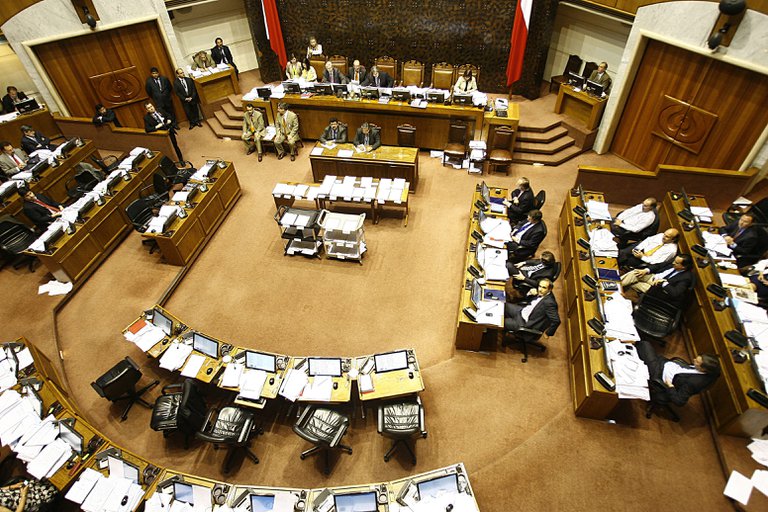RIO DE JANEIRO, BRAZIL – Congress was urged to address critical issues during its recess period. However, the proposal lacked the support needed to change its internal rules.
A large number of representatives of Chile’s political and social scene have strongly criticized the country’s legislators after their refusal to interrupt the congressional recess to proceed with two issues considered critical in the country’s public agenda: the reform of the Carabineros police force and the migratory crisis in the northern border.

The first issue, which was brought back to public debate after the death of a 27-year-old street juggler in the Panguipulli district, sparked a new wave of nationwide protests which has already resulted in the destruction of several buildings and calls for demonstrations in several cities to condemn police brutality and demand a deep reform of the Chilean military police force.
On the other hand, the second issue is considered an emergency following a wave of migrants, mostly Venezuelan, entering the towns along the country’s northern border.
The proposal to address the Carabineros issue was presented by leftist deputies René Saffirio and Pamela Jiles, while Juan Antonio Coloma proposed discussing the migratory crisis.
According to Deputy Jiles, the request is based on the fact that “a climate of insecurity has been created in a state ruled by law, and therefore it is imperative to guarantee citizens the respect and restoration of their right to life and their physical and psychological integrity.”
Faced with the received requests, Lower House deputy and president Diego Paulsen advised that in order for the proposal to succeed, a unanimous vote by the House would be required. However, this was not the case.
According to Saffirio, the decision was a consequence of a refusal by the Renovación Nacional (RN) and Evópoli parties, both pro-government. “Later they will say: ‘we did not see it coming’,” said the legislator, referring to the government’s reaction to the October 2019 social protests.
The RN deputies never agreed with this emergency session, they advised. Head of the bench, Deputy Sebastián Torrealba, declared that this interruption would be used as “political exploitation”, and added that “a special session will only be used for speeches loaded with political content with no solutions presented.”
Communist Party deputy Camila Vallejos also declared her opposition to those who voted against legislating during the vacation period. In her Twitter she declared that “one of the right-wing committees disagreed with the special session, and therefore, there was no unanimity to carry it out,” and that they will continue to insist on “acting as opposition”.
The controversy of congressional vacations in times of crisis in Chile is nothing new. In the summer of 2020, faced with rumors of a new social uprising in March that year, Deputy Andrés Celis proposed that both Houses suspend their recess which extends throughout the month of February.
He intended to modify the National Congress Organic Law so that the Chamber of Deputies and the Senate “upon a proposal of the respective Regime Commission, should issue a special regulation or modify the existing internal regulation,” which would establish terms and procedures for granting vacations. A shift system was even proposed to safeguard the operation of Congress, but none of this materialized.
Source: Infobae

